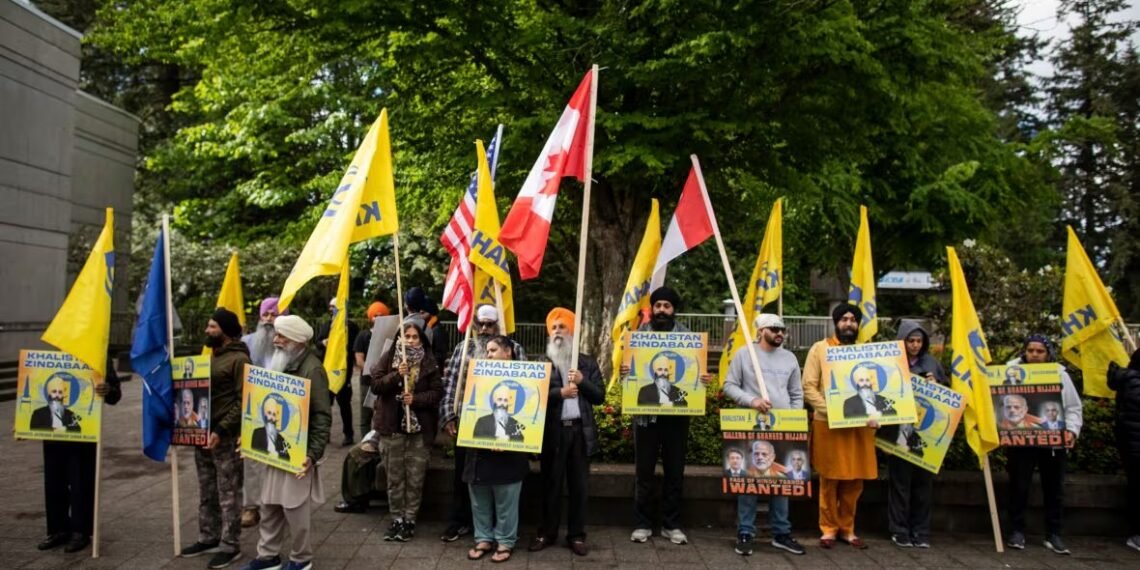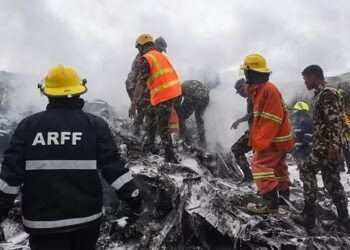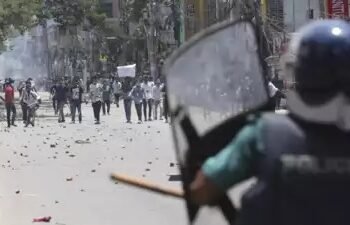Protests erupt as Hardeep Nijjar murder accused appear in court
The three Indian nationals who are charged with killing Khalistan terrorist Hardeep Singh Nijjar appeared before a British Columbia court on Tuesday. Scores of sikh community members staged a protest outside and inside the provincial court.
Social media posts featured images and videos of hundreds of demonstrators waving the blue and yellow flags of the movement and holding placards honoring Nijjar.
According to reports from the local media, the courts established a second overflow room to accommodate the additional fifty persons who wished to watch the hearing.
About a hundred more people brandished placards endorsing Sikh separatism outside the courthouse.
Also read: Vladmir Putin sworn in as Russian President for the 5th term
The three men—Karan Brar, 22, Kamalpreet Singh, 22, and Karanpreet Singh, 28—all residing in Edmonton—were taken into custody on Friday and charged with first-degree murder and murderous conspiracy.
On Tuesday, in front of a crowded Surrey provincial courthouse, they made separate video appearances to answer to charges of homicide.
The Vancouver Sun newspaper stated that the case was postponed until May 21 to allow the accused to consult with their attorneys.
According to the report, all three of the accused nodded to indicate that they understood the charges of first-degree murder and plotting Nijjar’s death. They also consented to have the hearings conducted in English.
Also read: “Operational Control” over Rafah crossing Egypt & Gaza strip; Delegation Scheduled
In accordance with a part of the Canada Criminal Code that prohibits the accused from speaking with any of the named seven individuals directly or indirectly, the court granted the Crown prosecutor’s request for a no-contact order.
Who was Hardeep Singh Nijjar?
Hardeep Singh Nijjar was a Canadian Sikh separatist leader who led the Khalistan movement, an autonomous Sikh state.
In the mid-1990s, Nijjar, who was born in India, immigrated to Canada. While the Indian government wanted to arrest Nijjar on charges of being a criminal and terrorist connected to the extremist Khalistan Tiger Force, Sikh organizations saw him as a human rights fighter.
Nijjar, 45, was shot and killed in June in Surrey, a suburb of Vancouver with a sizable Sikh community, outside a Sikh temple. A few months later, when he presented proof of Indian government participation in Nijjar’s killing, Canadian Prime Minister Justin Trudeau ignited a diplomatic spat with New Delhi.













